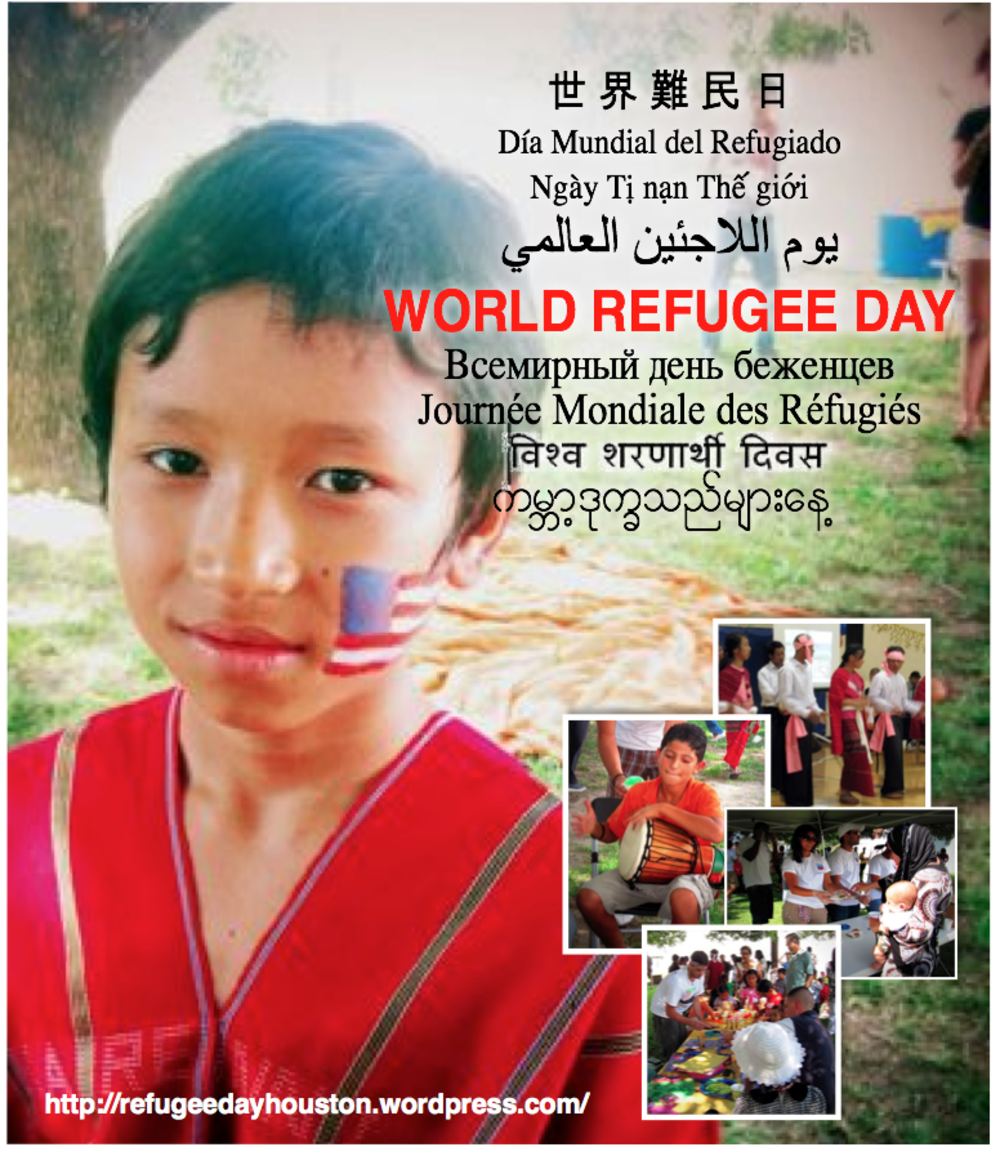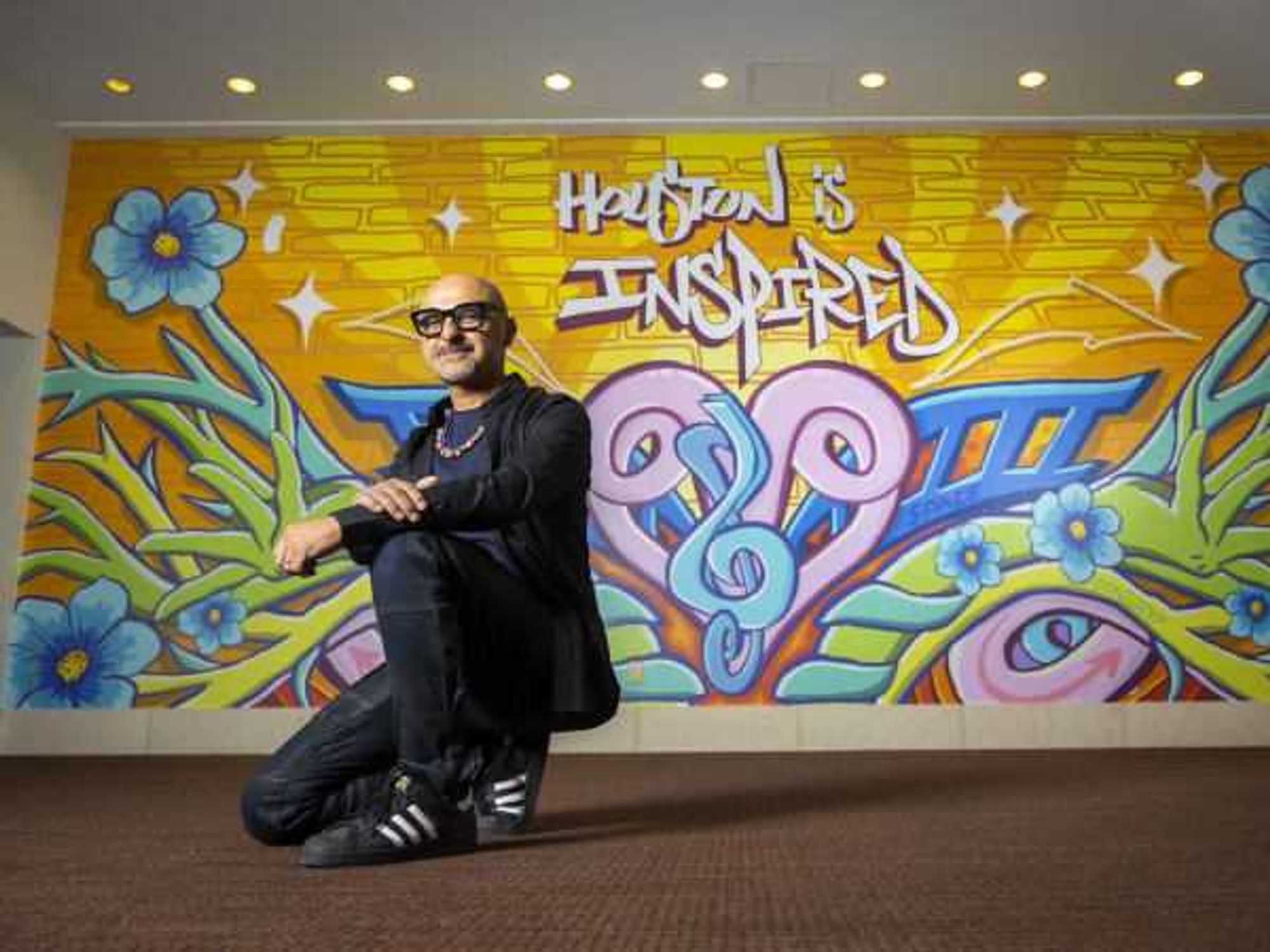Difference Maker
An amazing refugee story of loss, hope and helping others: Yani Rose Keo's operaworthy journey
 New Arrivals tells the amazing story of Yani Rose Keo.
New Arrivals tells the amazing story of Yani Rose Keo. Yani Rose Keo and her husband on their wedding day.
Yani Rose Keo and her husband on their wedding day. The opera is part of World Refugee Day.
The opera is part of World Refugee Day.
Entering her office, it's hard to miss the awards, trophies and certificates among the clutter that seems to blanket every inch of space. Yani Rose Keo smiles and her eyes shine as she explains to me what each trophy and award is for, but the item that she is most excited to share with me is a photograph.
The photograph is propped up against the wall facing her office chair. The photograph is old and starting to yellow. It features her in the center of the picture surrounded by a group of people. She points to the one closest to her and said “This man save my life.”
The man she points to is my grandfather, Paul Doyle.
This is a story of the intersection of two remarkable lives and how a shared passion for helping others forever impacted Houston.
“I never dreamed that one day I would be a refugee myself,” Keo says.
Yani Rose Keo was born in 1939 to a wealthy Cambodian family. Keo married Saoroth Keo, the director of the country’s railroads, when she was 15 years old.
Given her affluent lifestyle and place in the Cambodian upper-class, she was able to devote her time to volunteer work and travel. Keo worked with the wives of the prime minister and other high-ranking officials to help refugees in Asia – little did she know that one day she would require the assistance she was offering.
“I never dreamed that one day I would be a refugee myself,” Keo says.
On April 4, 1975 Keo was instructed to leave the country. According to Keo, the Cambodians believed that “the Communists would come and make changes” and would not harm the country. For this reason she thought, “We have a private plane, we will come back.”
Keo left her mother behind, telling her that she was going to Bangkok for a few days. She never saw her mother again. “They killed all of my family because they were educated and high-ranking,” she says of the infamous Cambodian killing fields.
Without a single possession, Keo and her child boarded a private plane and left Cambodia.
The private plane had only three passengers aboard. This plane ride became the basis of a new opera. New Arrivals, debuting Saturday as part of Houston’s Grand Opera's East + West Program, takes the audience through the emotional and physical journey experienced by Yani Rose Keo as she fled the Khmer Rouge and made her way to Houston.
And what a wrenching journey it was.
Shortly after that initial escape, Keo’s husband decided that he needed to return to his country. He and the prime minister met in Bangkok and went to the airport to board a plane back to Cambodia. After arriving at the airport intending to return to his native country, Saoroth discovered that he did not have his passport.
“The ambassador said to my husband ‘Brother, you do not have a passport. If you go the police will not allow you to go to the plane,' ” Keo says.
“I saw the plane my husband was supposed to be on land (in TV reports) and everybody was killed. Then I lost contact with my husband."
An Unexpected Reunion
Unbeknownst to Keo, Saoroth did not board the plane. It departed without him.
Keo joined her four children in Paris and began working as a nurse, channeling her helping spirit into the medical profession. Seven months after she thought her husband was killed in September of 1975, Keo was approached by a doctor who informed her that someone from America was on the phone for her. It was her husband.
Due to poor translating in the refugee camps, it was believed that Saoroth was a single male and a car mechanic.
Saoroth Keo had been living in Houston with Paul and Mary Lu Doyle, having moved there after missing his flight. When the plane departed without him, Saoroth was placed in a refugee camp in Thailand. From Thailand, Saoroth traveled to America where he resided in military-organized refugee camps.
Paul and Mary Lu Doyle had been very involved in Houston charities for years before they welcomed Saoroth into their home in 1975. Paul was the director of Catholic Charities at the time and was contacted by the United States Catholic Charities Conference about the possibility of sponsoring refugees.
That summer, my uncles Gerald and Kevin Doyle began work on founding the refugee program for Catholic Charities. Once running, the organization was asked to help 35 refugees from the Pendleton refugee camp settle in the Houston area. Catholic Charities was able to find sponsors for 34 of the refugees — all of them except Saoroth Keo.
Due to poor translating in the refugee camps, it was believed that Saoroth was a single male and a car mechanic. Thinking that housing and assisting a single male would not be too challenging, Paul, Mary Lu and their nine children welcomed him into their home.
Once settled in the Doyle household, Saoroth informed the Doyle family that, contrary to the profile provided by the refugee camp, he had a wife and children that he wanted to be reunitied with.
Staying up late one night due the time difference, Kevin placed a long distance call to Paris — using his knowledge of the French language to successfully reach Keo.
“One day I received a call from Houston, Texas. My boss said somebody from the United States called for me. I said, ‘I hate the world, I’m so angry, I don’t want to talk.’ Then she put the phone by my ear and I heard my husband’s voice," Keo says.
“My mind thought of the guns, horses and the cowboys and I thought, ‘Why Texas?’ All I knew about Texas was from the movies,” says Keo of learning of her husband’s whereabouts. Keo brought her children to Houston and began work helping fellow Cambodian refugees settle in America.
Since taking him in, the Doyles had also discovered that Saoroth was not a mechanic, but a civil engineer by trade.
Paul Doyle helped Saoroth find work as a draftsman at for a small architectural firm owned by a St. Michael’s parishioner, a firm that Saoroth would eventually become a partner at.
Keo began working for the Houston Independent School District, using her ability to speak different languages to connect with parents. Keo also taught English as a Second Language courses at Houston Community College at night as a way to help other Cambodians settle into America.
A Calling
At the end of the summer of 1975, Kevin and Gerald Doyle had to return to the University of Notre Dame — leaving the refugee program without leadership or direction. Two women volunteered to lead the program. One was former Vietnamese refugee Pauline Van Tho. The other was Keo.
Since then Keo has dedicated her life to helping refugees. After many years in charge of the refugee program at Catholic Charities, Keo decided to create a charity that’s sole purpose was helping refugees. “We sat down and said, ‘We need to organize one non-profit organization for refugees,’ ” she says.
“I went through so much that I know what they need. I know how to rebuild a life," Keo says.
Thus, her organization, Alliance for Multicultural Community Services, was born. Alliance is now the largest program in the area helping refugees. It is distinct in its inclusive nature; assisting refugees from both Asia and Africa. Keo believes that there should be no discrimination, and her beliefs are reflected in the diverse cultures and people that she helps on a daily basis.
Alliance helps refugees in every aspect of their lives. The organization works to find them jobs, housing, and even takes the refugees to the Department of Public Services to help them get driver’s licenses.
Keo also helps teach refugees how to farm and run their own business. After the refugees spend a year training, Keo encourages them to buy their own land and to become entrepreneurs.
The pride in her voice was evident as she showed me posters of her latest venture — helping Bhutanese farmers learn how to start their own farms in Texas.
“I went through so much that I know what they need. I know how to rebuild a life," Keo says.
The Keo and the Doyle family will intersect once again this weekend, this time in attendance at the New Arrivals opera.
In the performance on Saturday, Keo will be portrayed by Mihoko Kinoshita, a Japanese Opera singer who is being flown in from New York. Kinoshita has performed in Madama Butterfly, Verdi’s Requiem, Don Giovanni, La Boheme, Un Ballo in Maschera, Il Trovatore, Il Tabarro, La Traviata, Carmen and Turnadot.
The Opera was composed John Glover and written by Catherine Filloux, an award-winning playwright and human rights activist.
New Arrivals will be performed for free at the Baker-Ripley Neighborhood Center, Rothko Chapel, and Asia Society Texas Center.
The opera serves as a conclusion to the week-long celebration of Houston’s diverse culture and population. The city hopes to raise public awareness about the difficulties facing refugees and to encourage people to join in the effort to help refugees settle in Houston with World Refugee Week.
The week-long festivities, launched by Mayor Annise Parker in conjunction with a coalition of refugee services citywide, kicked off with the showing of Welcome to Shelbyville at the Houston Public Library.
A Young Professionals Mixer was also held at the Nouveau Antique Art Bar to encourage refugees to enter the professional world.
More than 20 organizations were in attendance at the resource fair, a place for refugees to seek help in settling in Houston. Catholic Charities, Interfaith Ministries, YMCA International and the Houston Food Bank are just a few of the groups that reached out to give a hand.
Houston Grand Opera will peform New Arrivals five times:
1 p.m. Saturday at the World Refugee Day Festival at the Baker Ripley Neighborhood Center
4 p.m. Sunday in Rothko Chapel
7 p.m. Tuesday at Baker Ripley
7:30 p.m. June 22 and 2 p.m. June 23 at the Asia Society Texas Center

